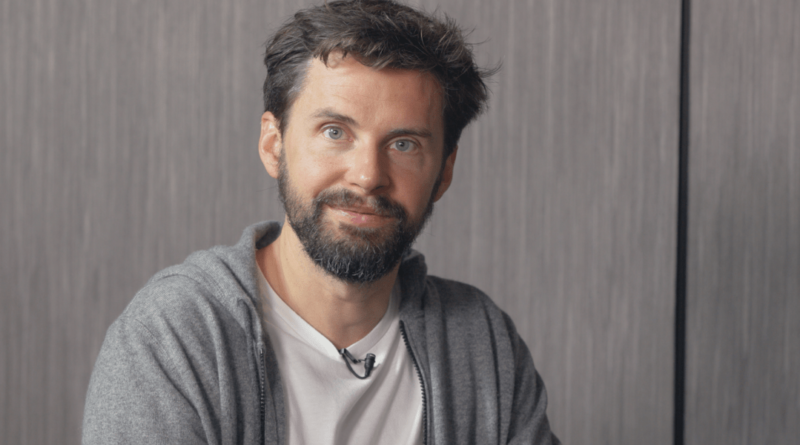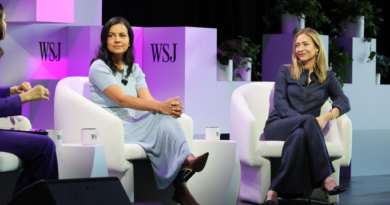How the Hinge algorithm finds your perfect match, according to its founder
The app that’s “designed to be deleted” may actually be getting its wish—but not for reasons its leadership wants.
Hinge, one of America’s most popular dating apps for adults, is seeing a wave of criticism from TikTok users lamenting their matches—and blaming the algorithm.
Daters are calling out the free version of Hinge for “hiding” high-value and attractive profiles, and accusing the company of pushing users into paying for more features if they want to see people who match their type. Hinge is “literally the worst dating app on the market right now,” goes one representative TikTok video; another user says Hinge’s suggested matches were so bad, she deleted the app to preserve her self-confidence. “All the men that like me on [Hinge] look like they snuck on Earth,” says another user.
There’s no shortage of advice to combat this purported issue. One TikToker offers step-by-step instructions for unhappy daters to manually reset their Hinge profile and “reboot” their dating pool. Another video offers directions to game the system by strategically declining matches and likes.
Disappointed users point to the app’s presentation of “Standout” profiles, claiming this curated profile selection is evidence that Hinge limits their exposure to potential matches that they find physically attractive. The daily grouping of “people your most type” are available in a feed only accessible by sending “Roses”—an enhanced, oftentimes paid, version of a standard like. Colloquially referred to as “Rose Jail,” the restriction has netted a TikTok hashtag nearing one million views and scores of videos from disgruntled Hinge users explaining “hacks” to break out.
But founder Justin McLeod denies claims that the app judges users based on their looks, telling Fortune Executive Exchange that “we don’t really have an attractiveness score.”
Instead, he says, Hinge creates an individualized “taste profile” for users by tracking who they like and who likes them back. These factors are weighted equally by the app, according to McLeod.
Hinge’s algorithm is based on a variation of the Gale-Shapley algorithm, a Nobel-prize-winning formula designed in 1962 by economists David Gale and Lloyd Shapley to solve something called the “stable marriage problem.” To create long-lasting matches in circumstances where money can’t play a role, like public education, organ donation, and medical school resident matching, the formula iterates through participants’ choices until a match is found. Hinge combines the 62-year-old formula with machine learning to pair people with partners they are most likely to prefer based upon their liking history, a spokesperson told Fortune.
McLeod echoed the sentiment. Responding to users’ disappointment, he acknowledged that matchmaking and dating are “very hard,” but insisted, “we are getting people out on great dates.”
Love does cost a thing
Founded in 2011 by McLeod, Hinge first gained steam among millennials and now boasts over 23 million users. Now, the CEO says Hinge is “growing much faster with Gen Z,” pointing to an increase in growth among 18-to-24-year-olds.
Acquired by dating conglomerate Match Group in 2018, Hinge expects to hit revenues “well over $400 million” by the end of 2023, according to its founder.
“We’re setting up a date every two seconds now,” McLeod said. “We’re the number three dating app globally.”
The app has two paid tiers starting at roughly $15 per week (discounted to $200 per year) with Hinge+, which allows users to send unlimited daily likes to others on the app and set more dating preferences, like height, education level, dating intentions, and more. HingeX, the priciest of the paid options, costs users nearly $300 per year and offers more perks, including “enhanced recommendations” promising “access to your type,” plus a feature that boosts profiles to other Hinge users so they see the account sooner.
In contrast, Hinge’s free version only allows users to set dating preferences related to location, age range, ethnicity, religion, and maximum distance.
In response to a question from Fortune’s Ruth Umoh, McLeod denied that Hinge’s algorithm steers users toward paid accounts, insisting that “overall user growth is the lifeblood of our company.”
“When we help people get on more dates, we grow faster, and people tell their friends more,” says McLeod. “If we were to trade that off by limiting your experience [or] by getting you to just pay more money, that wouldn’t be good for our overall long-term trajectory.”
However, the app does use mutual “Dealbreakers”—or dating preferences—and recent activity to add weight to “Standouts,” a separate feed on the app dedicated to showcasing profiles that “are getting the most attention” and who the app thinks you’ll like. To get a Standout’s attention, users can send a Rose, which automatically pushes their profile to the top of their list of likes.
“Standouts are people that are a bit more weighted towards, you’re likely to like them versus they’re likely to like you back, which is why we have you send Roses,” McLeod said. “Roses are two times more effective at actually getting you on a date.”
Users are offered one free Rose per week, but can choose to buy more. A set of three, the cheapest offering, will set you back about $10.
“We have a principle that the free product is sacred,” McLeod said. “We really only charge for what we say we can’t give away for free.”
That’s the idea behind making some features exclusive, McLeod said. “If everyone had unlimited Roses, then that Rose wouldn’t mean anything anymore,” he told Fortune.
Falling out of love with dating apps
Hinge is not the only dating app incentivizing users with paid subscription offerings, but the industry’s overall push towards monetization may be making America fall out of love with them.
Hinge’s parent company, which also owns Tinder, OkCupid, Match.com, The League, and more, disappointed investors last fall. Its third-quarter earnings showed a 6% year-over-year decline in people paying for Tinder, and the company lowered its revenue projections for fourth-quarter earnings. However, Hinge’s direct revenue increased 44% year over year, and third-quarter downloads were the app’s best ever.
Yet its parent company’s stock is down almost 80% since its record high during the pandemic dating app boom in 2021, and Match Group appears to be looking for a turnaround after facing pressure from investors. Days after a Wall Street Journal report earlier this month revealed that activist Elliott Investment Management had built a $1 billion stake, Match Group named Faye Iosotaluno as the new CEO of Tinder, a role that’s been vacant for almost two years. The company is set to report fourth-quarter earnings on January 30 after the market close.
It’s a trend that shows the rapid rise of dating app use during the pandemic may appear to be shifting. Morgan Stanley analysts acknowledged the revenue slowdown back in April, citing a decline in user growth and oversaturation.
However, analysts still expect the industry to enjoy a 10% compound annual growth rate as more formerly free users opt for a variety of paid tiers offering more “enhanced ways to show interest” to potential matches.
“The market too often focuses on just user trends but misses the importance of monetization, which is likely the most important driver of revenue growth going forward,” Morgan Stanley equity analyst Lauren Schenk said.
An eye on AI
To expand his product, McLeod is looking towards artificial intelligence, saying it will be a “big focus” for the app in the future.
“It unlocks a lot of opportunity, both in terms of effectiveness and becoming that matchmaker that can really deeply understand you and other people and make much more curated, targeted matches,” McLeod said. “As cold as the word ‘efficient’ is when it comes to dating, ultimately, we’re trying to get you to have to do less work and go through fewer people to find your person and move off [the app] faster.”
While McLeod says he’s “actually not the dating expert,” he still recommends an old-fashioned approach to dating:
“The more that you are just authentic, and be a bit vulnerable, and not necessarily try to get as many likes as possible…that’s actually going to build the greatest signal and help us find you your person much faster.”




